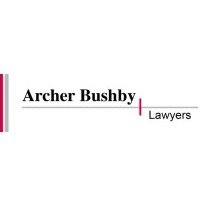Best Landlord & Tenant Lawyers in Scottsdale
Share your needs with us, get contacted by law firms.
Free. Takes 2 min.
Free Guide to Hiring a Real Estate Lawyer
List of the best lawyers in Scottsdale, Australia
About Landlord & Tenant Law in Scottsdale, Australia
Landlord & Tenant law in Scottsdale, Australia, is encompassed within the broader context of Tasmanian property law, designed to regulate the relationship between landlords and tenants. These laws are intended to protect the rights and obligations of both parties, ensuring a fair and equitable rental market. The legislation governs everything from lease agreements, rent payments, maintenance responsibilities, to termination and eviction processes.
Why You May Need a Lawyer
Engaging with a lawyer specializing in Landlord & Tenant law may be beneficial in several common scenarios:
1. Disputes over rental terms: When terms of a lease agreement are contested or misunderstood, leading to disagreements.
2. Eviction proceedings: Guidance is often necessary in lawful eviction processes to ensure compliance with legal standards.
3. Rent arrears or increase conflicts: Legal advice may help resolve conflicts regarding rent payment defaults or disputed increases.
4. Property damage issues: Disagreements over repair responsibilities or damages claims often require legal clarification.
5. Lease terminations: Understanding legal rights and obligations when terminating a lease early.
Local Laws Overview
In Scottsdale, tenancy laws are governed by the Residential Tenancy Act 1997. Key aspects include:
- Lease Agreements: It is mandatory for lease agreements to be formalized in writing. They must clearly outline the terms, conditions, and duration of the tenancy.
- Bond: A rental bond typically equivalent to four weeks’ rent may be sought, and is to be lodged with the Rental Deposit Authority.
- Rent Control: Rent can only be increased at specified times-generally every 12 months for fixed leases or by 60 days’ notice for periodic leases.
- Maintenance and Repairs: Landlords are required to maintain the rental property in good repair, while tenants should report any needed repairs promptly.
Frequently Asked Questions
What is a tenancy agreement?
A tenancy agreement is a legal contract between the landlord and tenant outlining the rental terms, including rent amount, payment frequency, and responsibility for utilities.
Can the landlord increase my rent any time?
No, landlords can typically increase rent only once every 12 months during a fixed-term lease or with 60 days’ notice during a periodic lease.
What should I do if my landlord refuses to make necessary repairs?
If verbal requests are ignored, formally request the repairs in writing. If the issue isn't resolved, you can apply to the Residential Tenancy Commissioner for help.
How can I recover my bond at the end of the tenancy?
After vacating, clean the property, return keys, and fill out a bond claim form. If the property is in a satisfactory state, the bond will be returned.
What happens if I terminate my lease early?
You may be responsible for rent until a new tenant is found, and potentially incur reletting fees unless the landlord breaches the terms of the lease.
Am I allowed to sublet the property?
Subletting is typically only permissible with the landlord's written consent, unless your lease states otherwise.
What are my obligations regarding property damage?
Tenants must not cause damage deliberately or negligently. Promptly report any accidental damage to landlords and arrange for necessary repairs.
Is tenant insurance necessary?
While not mandatory, tenant insurance is advisable to protect personal belongings against unforeseen events.
What if I'm behind on rent payments?
Communicate with the landlord as soon as financial difficulties arise to discuss potential payment plans. Failure to do so can lead to eviction proceedings.
Can the landlord enter the property without notice?
Landlords can only enter the property with appropriate notice (generally 24 hours) and for legitimate purposes such as inspections or repairs.
Additional Resources
Here are some valuable resources for anyone seeking assistance or more information regarding landlord and tenant matters in Scottsdale:
- Tasmanian Residential Tenancy Commissioner.
- Tenants' Union of Tasmania: Offers free legal advice for tenants.
- Consumer, Building and Occupational Services (CBOS) in Tasmania: Provides information on residential tenancies.
Next Steps
If you find yourself in need of legal assistance concerning landlord and tenant issues, consider the following steps:
1. Gather relevant documentation, including lease agreements, correspondence, and any filings made with official bodies.
2. Contact a qualified lawyer in Scottsdale specializing in property law for a consultation.
3. Utilize free legal resources available in the area to better understand the situation and explore preliminary advice or mediation services.
Lawzana helps you find the best lawyers and law firms in Scottsdale through a curated and pre-screened list of qualified legal professionals. Our platform offers rankings and detailed profiles of attorneys and law firms, allowing you to compare based on practice areas, including Landlord & Tenant, experience, and client feedback.
Each profile includes a description of the firm's areas of practice, client reviews, team members and partners, year of establishment, spoken languages, office locations, contact information, social media presence, and any published articles or resources. Most firms on our platform speak English and are experienced in both local and international legal matters.
Get a quote from top-rated law firms in Scottsdale, Australia — quickly, securely, and without unnecessary hassle.
Disclaimer:
The information provided on this page is for general informational purposes only and does not constitute legal advice. While we strive to ensure the accuracy and relevance of the content, legal information may change over time, and interpretations of the law can vary. You should always consult with a qualified legal professional for advice specific to your situation.
We disclaim all liability for actions taken or not taken based on the content of this page. If you believe any information is incorrect or outdated, please contact us, and we will review and update it where appropriate.








